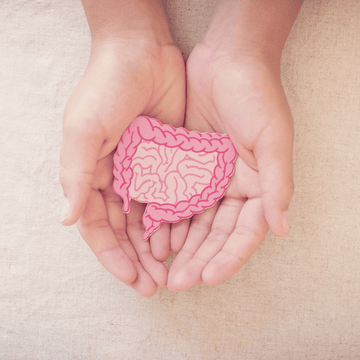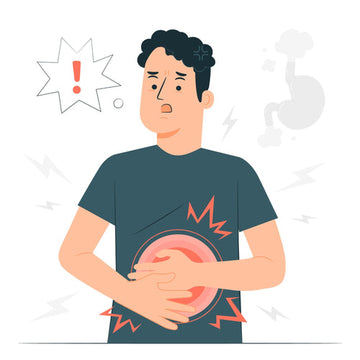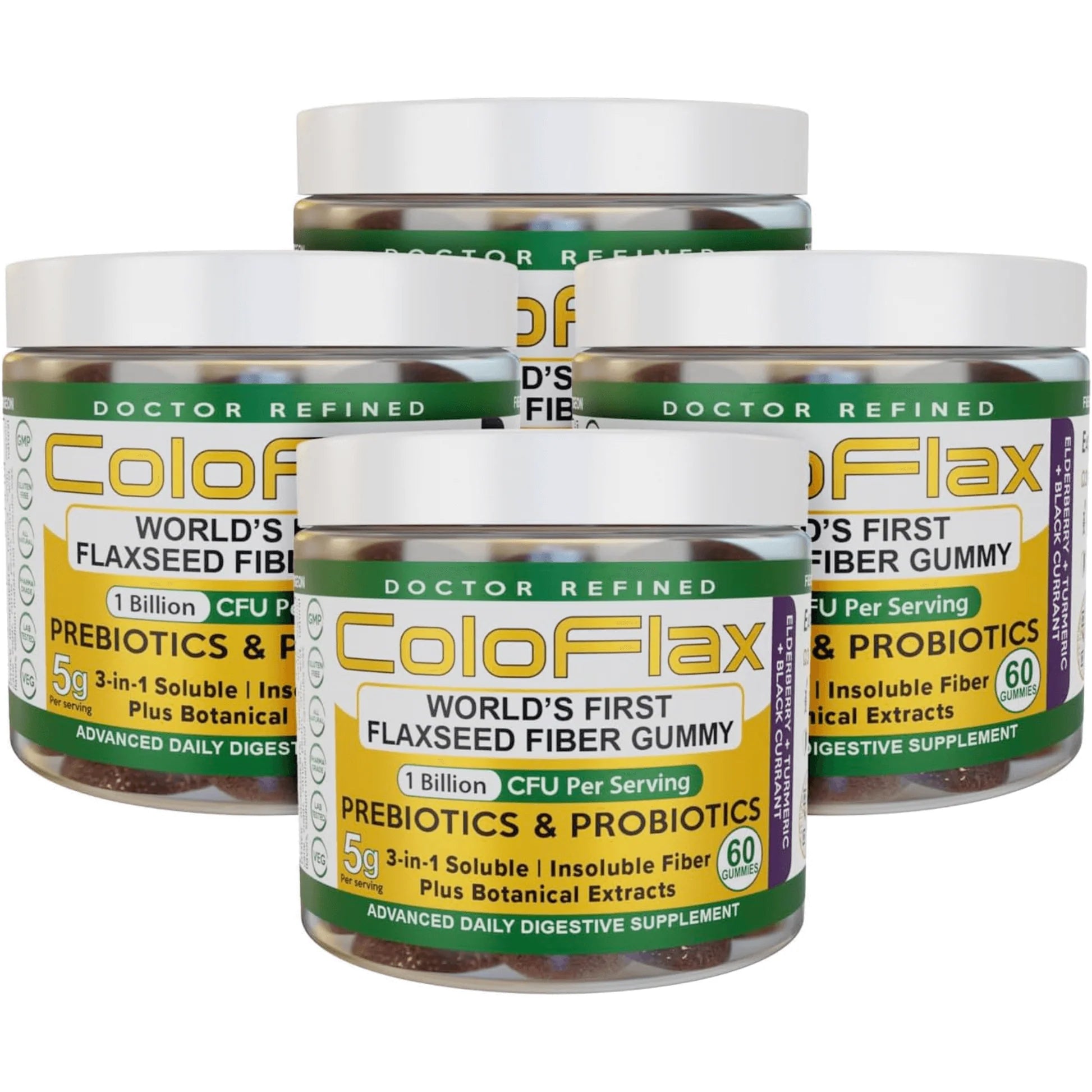Good health starts in your gut. If you’re constipated, it can weigh you down, making you sluggish, tired, stressed, and agitated. And if the issue is caused by an imbalance in intestinal flora or another gastrointestinal problem, the effects could be even more far reaching.
With that said, it’s no wonder that countless millions of dollars are spent on colon cleansing every year. Americans throw money at numerous powders, pills, and even cleansing retreats in the hope they can remove “toxins” and feel better. Needless to say, these treatments aren’t all that they claim to be.
What Do Colon Cleansing Supplements Contain?
The term “colon cleanse” is pretty generic, so there is no predetermined ingredient list. Usually, however, they fall into one of two categories.
On the one hand, you have supplements filled with mostly natural and beneficial ingredients. Many of them contain similar ingredient profiles as some fiber supplements and they are designed to gently support colon health. You can take them regularly and they “cleanse” by restoring balance and regularity while also supporting your body’s natural processes.
On the other hand, there are supplements that are basically just laxatives by another name. In this case, the cleanse is a little more immediate and a lot more noticeable, and it takes some users by surprise.
The former can provide some benefits when taken daily over many weeks. They can boost your fiber intake, provide you with an assortment of digestion-supporting nutrients, and make you more regular.
The latter should not be used long term and can be dangerous when it is. Unless otherwise advised by a doctor, you shouldn’t take laxatives every day. Unfortunately, it’s the laxative supplements that often attract the most attention.
To understand why this is the case, imagine that you have been struggling with constipation for several weeks. You used to use the toilet once a day, but now you’re going twice a week at most. You feel sluggish, grid-locked, and then a friend recommends a “colon cleanser”. So, you take it, the laxative kicks in, and the next day you have a bowel movement. You keep taking it, and you keep having bowel movements.
Within a few days, it feels like you’ve expelled days’ worth of waste, and as a result, you’re much less bloated and have more energy. Naturally, you’ll attribute it to the colon cleanser, and so you keep taking it. You even review it and recommend it. You’re so charmed by this supplement that you ignore the pain, discomfort, and diarrhea that inevitably follows when you keep taking the pills despite not being constipated.
Ingredients to Look Out For
If you’re looking for a supplement that will naturally support digestive health without triggering a laxative effect or causing any unpleasant side effects, check the label for the following ingredients.
Senna Leaf
Senna leaf comes from the Senna alexandrina or “senna” plant. It’s a type of shrub that mainly grows in North Africa and India. The leaves have been consumed as an herbal tea for hundreds of years, but these days they are often processed into powders, tinctures, and tablets and sold as laxatives.
It’s the main ingredient in Ex-Lax, along with numerous other laxative preparations sold all over the world. Of course, the dose used in colon cleansing supplements is usually less than the one you’ll find in Ex-Lax, but not always, and it’s still a laxative, so it may still cause results that you weren’t expecting.
Some supplements use some variation of “rhubarb root” or “rhubarb extract” on their label. That’s because rhubarb contains the same active ingredients (sennosides) found in the senna plant.
Aloe Vera Extract
Aloe vera is perhaps best known for its soothing properties. It’s often added to gels and creams and used to treat sunburn and other skin complaints. But it’s also a potent laxative in its extract form, and that’s what you’ll find in many colon cleansing supplements. Some of them even use a combination of senna leaf and aloe vera extract, creating a mixture that sounds natural and healthy, but can have a potent effect on your bowels.
Psyllium Husk
Psyllium husk is a natural product made from the seed husks of a plant that grows throughout South and Central Asia. It’s a pure fiber product that works by absorbing water, creating a gel-like block, and then moving slowly through the gut.
Unlike aloe vera and senna leaf, it can be used every day. After all, it’s basically just fiber and is a great way to keep you regular.
The issue comes when large doses of psyllium are taken alongside laxatives and diuretics by people who don’t really know what they are taking.
Psyllium needs a lot of water to work. If it’s not taken with an adequate amount of liquid, the “gel-like block” can cause an obstruction in the bowel. If laxatives are forcing the bowel to spasm while diuretics are clearing the body of water, it can create a perfect storm that results in severe abdominal bloating and pain.
Regardless of the dose and the form (powder or pills), make sure you drink a lot of water throughout the day after taking psyllium.
What About Detox Supplements?
The detox fad seems to have largely died out. You couldn’t move for supplements, teas, and powders branded as “detox” products a few years ago, but now it seems that tighter regulations and increased customer awareness has sent them into the shadows.
They still exist though, and they still make the same claims that they always did.
The products are usually marketed on the notion that they can “detox” your body. They will typically make grandiose claims about “toxins” that build up in your body after exposure to everything from cigarettes and alcohol to fast food and pollution.
But that’s not how the body works. You have a natural built-in detox machine—your liver. It does the work that these products claim to do, and it does a pretty good job. There are a number of supplements that claim to support liver health and thus aid with the detoxification process, but you should generally be wary of anything that claims to detox your body.
Are Colon Cleansing Supplements Dangerous?
It depends. The issue is that many of them contain laxatives, so they should only be used for brief spells, but that’s not how most consumers use them.
If you take laxatives every day, you will become reliant on them. Your body needs those compounds to have a normal bowel movement. Furthermore, the constant barrage could damage the delicate microbiome and cause long-lasting issues.
Do Colonics Work?
A colonic, also known as a colon cleanse, is a procedure that involves inserting a tube into the rectum and then pushing large quantities of water through the tube. The water “washes out” the colon and is then expelled, along with the waste.
It’s certainly an effective way of ridding the body of waste, but many experts are doubtful as to the benefits of this practice.
First, it’s often argued that the waste would be passed out eventually anyway. Proponents of colon cleansing like to state that old waste gets trapped in the colon and can stay there for months and even years at a time. You may have seen illustrations showing “pockets” within the colon where the waste lodges itself, but it’s a living organ that’s constantly pushing out waste and effectively cleaning itself, so that image isn’t entirely truthful.
Secondly, it could disrupt the delicate electrolyte balance in the intestines and may impact gut flora. A single procedure is unlikely to cause any such issues, but that brings us to the final point, which is that colonics can damage the colon and even cause an infection if they are not performed correctly.
If you are considering a colonic, speak with your doctor first. It shouldn’t be your first course of treatment, as there are many better and easier options available (see below).
What are the Best Alternatives to Colon Cleansing Supplements?
If you want a complete, natural, healthy, and effective way to truly “cleanse” your colon, you only need a few things:
- Fiber
- Probiotics
- Water
- Exercise
Fiber is lacking in the American diet. In fact, as noted in our blog on the benefits of a high fiber diet, just 5% of Americans eat enough. The reason so many people rush to buy cleansing supplements and detox teas is because they’re lacking the most basic ingredient needed to keep their gut healthy.
It’s like complaining that you’re dehydrated all the time and then spending all your money on sports drinks instead of just drinking more water.
Speaking of which, you need water to add moisture and bulk to your stools, thus ensuring their smooth passage through your colon. How much you need will depend on your age, gender, size, location, and level of activity, but a good barometer is to drink when you’re thirsty, when you eat, and when you exercise.
It is possible to drink too much water, but it’s typically not something that happens on accident as you would need to consume vast amounts to reach a dangerous level.
Probiotics boost your gut microbiome, which in turn helps to keep everything ticking over. An imbalance of gut bacteria could cause diarrhea and constipation, as well as general discomfort. You can get probiotics from supplements and fermented food (sauerkraut, kimchi, live yogurt, miso).
Finally, exercise helps to prevent the inevitable stagnation caused by a sedentary lifestyle. Don’t let your bowel get lazy! Walk, stretch, jog, play sports—find a way to stay busy and you will feel much better as a result.
Summary: The Truth About Colon Cleansing Supplements
There are a lot of beneficial and well-made colon health supplements on the market. But there are also many laxative pills and drinks, and it’s the latter that usually sweep social media.
Beneficial colon cleansing supplements typically use a mixture of bulk forming laxatives (psyllium), plant extracts, and probiotics. These are similar to our own ColoFlax fiber gummies, which contain three matrixes: soluble/insoluble fiber, probiotics, botanical extracts.
The ones you should be wary of can include stimulant laxatives, little-known extracts, and ingredients that sound good but have few actual benefits.
Always do your due diligence when shopping for a new supplements. Don’t just take the word of a celebrity or influencer pushing the product on social media. Check the label, look into the brand, and if there is something you don’t recognize, Google it and learn about it.
Your digestive health is counting on it.
If you want a digestive supplement made to a pharmaceutical grade, with no laxatives and no synthetic additives, pick up a bottle or two of ColoFlax.






